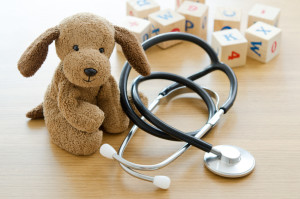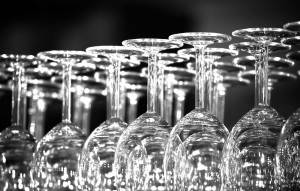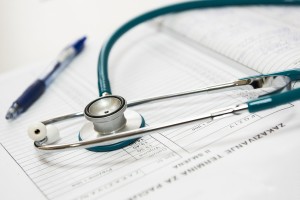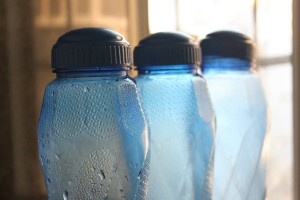- Calls to this hotline are currently being directed to Within Health, Fay or Eating Disorder Solutions
- Representatives are standing by 24/7 to help answer your questions
- All calls are confidential and HIPAA compliant
- There is no obligation or cost to call
- Eating Disorder Hope does not receive any commissions or fees dependent upon which provider you select
- Additional treatment providers are located on our directory or samhsa.gov
Abstaining from Alcohol to Support ED Recovery
Contributor: Lisa Hatten, Business Development at Solid Landings Behavioral Health
 The existing literature on addiction is extensive and strikingly clear: there is an extremely high incidence of co-occurrence between eating disorders (ED) and substance abuse. The most widely cited study conducted by CASA notes that nearly 50% of individuals diagnosed with ED also have a history of substance abuse (9% of the general population has a history of substance abuse), while up to 35% of individuals with a substance abuse problem display symptoms of eating disorders (3% of the general public has been diagnosed with an eating disorder). [1]
The existing literature on addiction is extensive and strikingly clear: there is an extremely high incidence of co-occurrence between eating disorders (ED) and substance abuse. The most widely cited study conducted by CASA notes that nearly 50% of individuals diagnosed with ED also have a history of substance abuse (9% of the general population has a history of substance abuse), while up to 35% of individuals with a substance abuse problem display symptoms of eating disorders (3% of the general public has been diagnosed with an eating disorder). [1]
Research as to the exact cause of this correlation—whether it is rooted in the biology of addiction, psychologically rooted in mental illness, or a combination of multiple factors—is on-going, but anecdotal evidence shows that eating disorders and alcohol abuse go hand-in-hand, and physicians, psychologists, and treatment centers are now developing recovery programs designed to address both illnesses simultaneously.
 This mounting body of literature does not, however, address the role of alcohol in recovery from ED for individuals who do not have a history of alcohol abuse and would not consider themselves alcoholics. For these individuals, consumption of small to moderate amounts of alcohol can feel like a safe and socially-acceptable method of enjoying a meal, relaxing and de-stressing, and even coping with difficult emotions. After all, everyone enjoys the relaxation that comes with a drink, as anxiety decreases, distressing thoughts move into the background, and both the body and the mind enjoy the calm and relaxation offered by alcohol.
This mounting body of literature does not, however, address the role of alcohol in recovery from ED for individuals who do not have a history of alcohol abuse and would not consider themselves alcoholics. For these individuals, consumption of small to moderate amounts of alcohol can feel like a safe and socially-acceptable method of enjoying a meal, relaxing and de-stressing, and even coping with difficult emotions. After all, everyone enjoys the relaxation that comes with a drink, as anxiety decreases, distressing thoughts move into the background, and both the body and the mind enjoy the calm and relaxation offered by alcohol.
For those recovering from ED, even one drink can make coping with meals easier, dull the preoccupation with weight and appearance, and ease the tension of a social gathering.
Yet as easy as alcohol is as a coping mechanism, alcohol use during ED recovery is counterproductive, unhealthy, and even dangerous. For individuals who have taken the critical step of committing themselves to recovery, whether through an inpatient program, with medical and psychological guidance, or through self-help, making the commitment to abstain from alcohol is one of the most important steps they can take to restore physical and mental health and ensure long-term success.
Alcohol use can exacerbate health problems caused by ED
 Anyone coping with ED knows the serious health problems they cause, such as low blood sugar, anemia, infertility, insomnia, and bradycardia, to name just a few. Even small amounts of alcohol can make these already serious problems even more critical.
Anyone coping with ED knows the serious health problems they cause, such as low blood sugar, anemia, infertility, insomnia, and bradycardia, to name just a few. Even small amounts of alcohol can make these already serious problems even more critical.
For example, alcohol can inflame and irritate bleeding ulcers and gastrointestinal problems, as well as contribute to potentially fatal liver problems by presenting additional toxins to a liver already damaged by insufficient caloric intake. Another common problem exacerbated by both alcohol and ED is loss of bone density and the rapid onset of osteoporosis.
Alcohol use increases the risk of dehydration and electrolyte imbalance
 From a physical perspective, recovery from ED must focus on offering the body hydration, caloric intake, and proper nutrients. Alcohol is a diuretic, meaning that it flushes liquids and nutrients out of the body, contributing to dehydration and electrolyte imbalances which are already problematic for those suffering from ED or in the early phases of refeeding. When the body is dehydrated and low in critical minerals such as potassium, calcium, magnesium, and phosphate, the body cannot sustain the electrical currents needed for a normal heartbeat. The result is low blood pressure and irregular heartbeats, and can ultimately lead to cardiac arrest and death.
From a physical perspective, recovery from ED must focus on offering the body hydration, caloric intake, and proper nutrients. Alcohol is a diuretic, meaning that it flushes liquids and nutrients out of the body, contributing to dehydration and electrolyte imbalances which are already problematic for those suffering from ED or in the early phases of refeeding. When the body is dehydrated and low in critical minerals such as potassium, calcium, magnesium, and phosphate, the body cannot sustain the electrical currents needed for a normal heartbeat. The result is low blood pressure and irregular heartbeats, and can ultimately lead to cardiac arrest and death.
Alcohol use can undermine the refeeding process
For someone attempting to heal and restore health through the increased consumption of calories, alcohol presents a critical problem. Alcohol contains only “empty” calories, meaning it contains absolutely no nutritional value. So for instance, a vodka and Diet Coke has 110 calories but no nutrients beyond sugar. More critically, that drink may take the place of foods that offer the body much needed nutrients, such as the 110 calories in a 4oz serving of grilled chicken, which also contains 26g of protein, 14mg of calcium, and 270mg of potassium.
Alcohol masks and dulls the root causes of ED
 It is easy to use alcohol to make the next meal a little easier and to dull the sensitivity to weight and appearance, and if the eating disorder has developed into a way to cope with another mental illness or a traumatic event, alcohol can help numb and control the negative emotions that were once numbed and controlled by the “high” of starvation and/or purging. Ultimately, recovery from ED will only be successful if the underlying conditions, emotions, and/or co-occurring mental illnesses are addressed, and a more healthy relationship with food established, without the assistance of a new, artificial coping
It is easy to use alcohol to make the next meal a little easier and to dull the sensitivity to weight and appearance, and if the eating disorder has developed into a way to cope with another mental illness or a traumatic event, alcohol can help numb and control the negative emotions that were once numbed and controlled by the “high” of starvation and/or purging. Ultimately, recovery from ED will only be successful if the underlying conditions, emotions, and/or co-occurring mental illnesses are addressed, and a more healthy relationship with food established, without the assistance of a new, artificial coping
Replacing one addiction with another: the slippery slope from ED to alcoholism
 Eating disorders are increasingly being recognized as an addiction, similar to alcohol or substance abuse in their biological and psychological manifestations. Studies have shown that for individuals with eating disorders, the act of starvation and/or purging begins to stimulate the brain’s reward center just as a drink or a drug would, reducing anxiety, dulling negative thought patterns, and generating feelings of control, satiety, and self-worth. Unfortunately, recovery from eating disorders does not simply involve giving up food.
Eating disorders are increasingly being recognized as an addiction, similar to alcohol or substance abuse in their biological and psychological manifestations. Studies have shown that for individuals with eating disorders, the act of starvation and/or purging begins to stimulate the brain’s reward center just as a drink or a drug would, reducing anxiety, dulling negative thought patterns, and generating feelings of control, satiety, and self-worth. Unfortunately, recovery from eating disorders does not simply involve giving up food.
Individuals recovering from ED must face food each and every day, engaging in a constant battle to develop a healthier relationship with caloric intake. Making this struggle easier with a drink may seem harmless, but because alcohol offers the same level of positive stimulation that was originally offered by the eating disorder, it can be all too easy for the addiction from eating disorder to become an addiction to alcoholism. Avoiding alcohol consumption entirely during ED recovery is the best, maybe the only, way to avoid alcoholism while giving the body the nutrients it needs to heal and recover, and strengthen.
Community Discussion – Share your thoughts here!
Have you or a loved one struggled with addiction and disordered eating? What steps were taken to achieve recovery? What worked well and what didn’t?

About Lisa Hatten: I’m dedicated to helping men and woman find the specialized help they need to break free from the vicious cycle of addition. I believe, Solid Landings is the place that can set you free! Call US TODAY! 863-271-0304 Please mention you saw us on Eating Disorder Hope.
Reference:
- Food for Thought: Substance Abuse and Eating Disorders, December 2003: National Center on Addiction and Substance Abuse (http://www.casacolumbia.org/addiction-research/reports/food-thought-substance-abuse-and-

